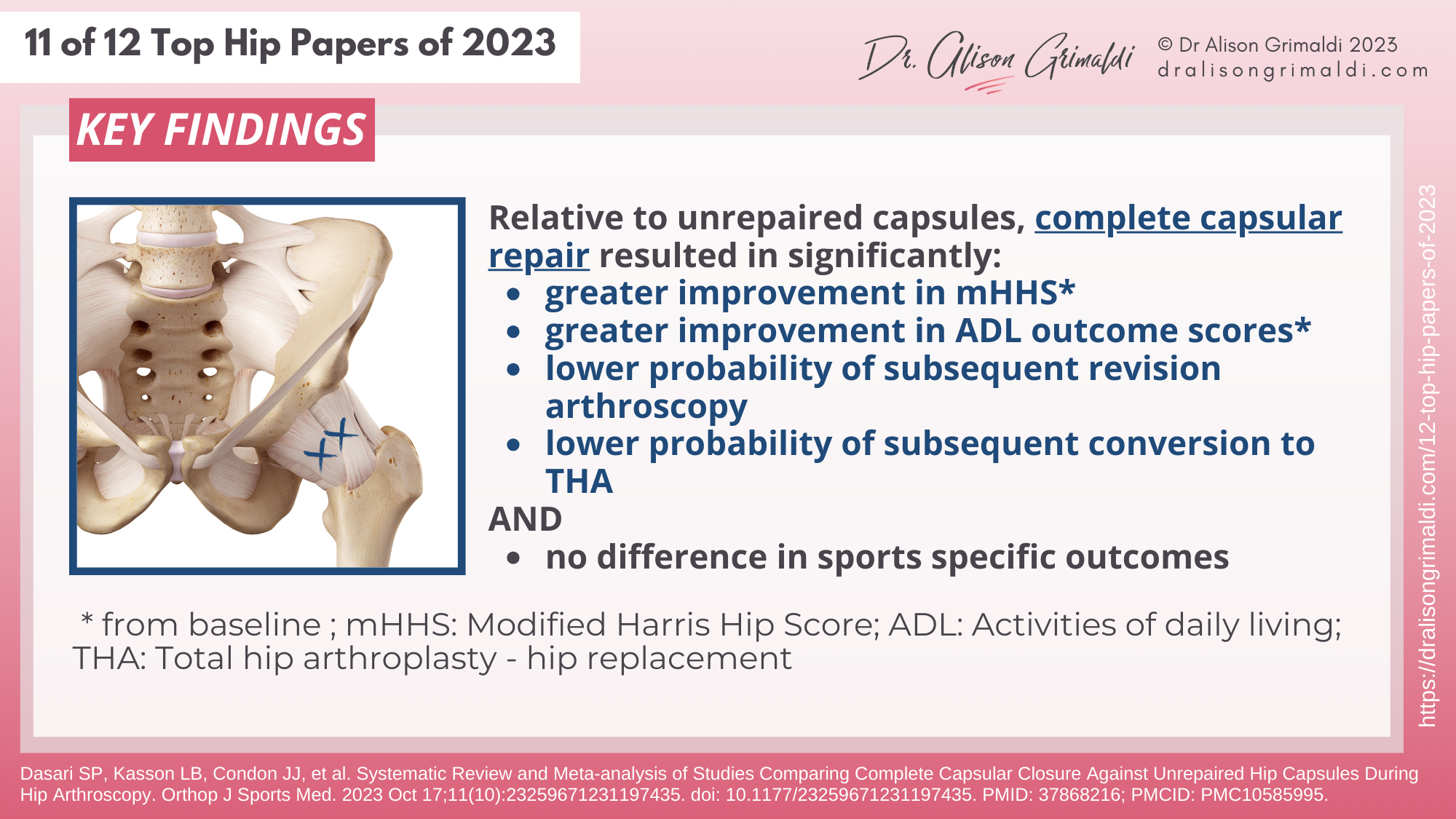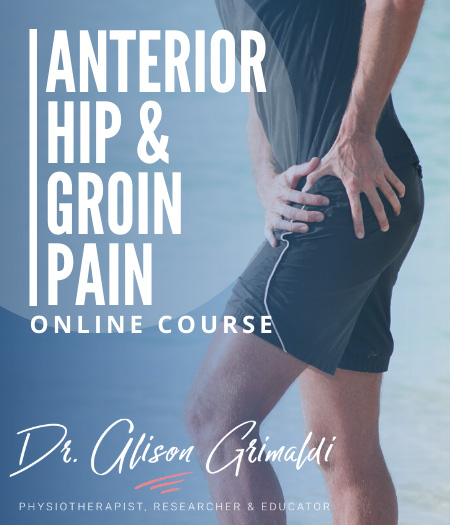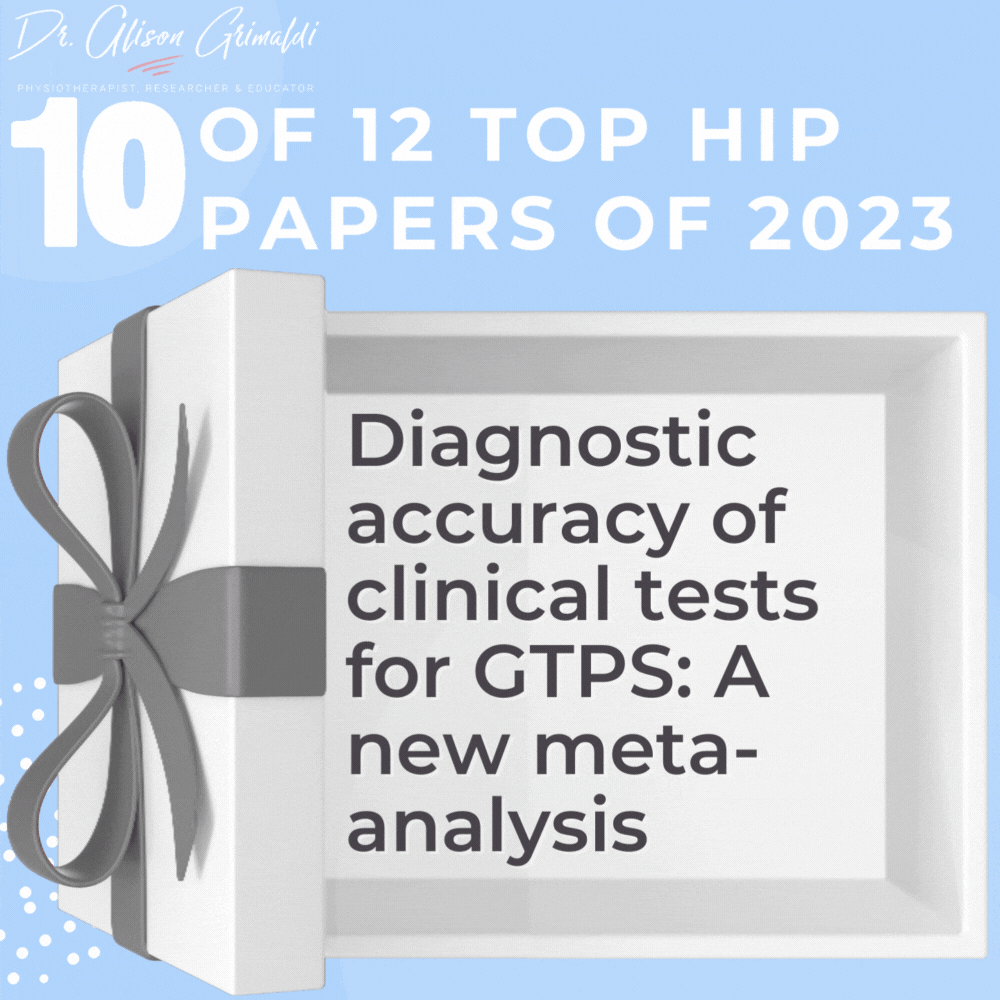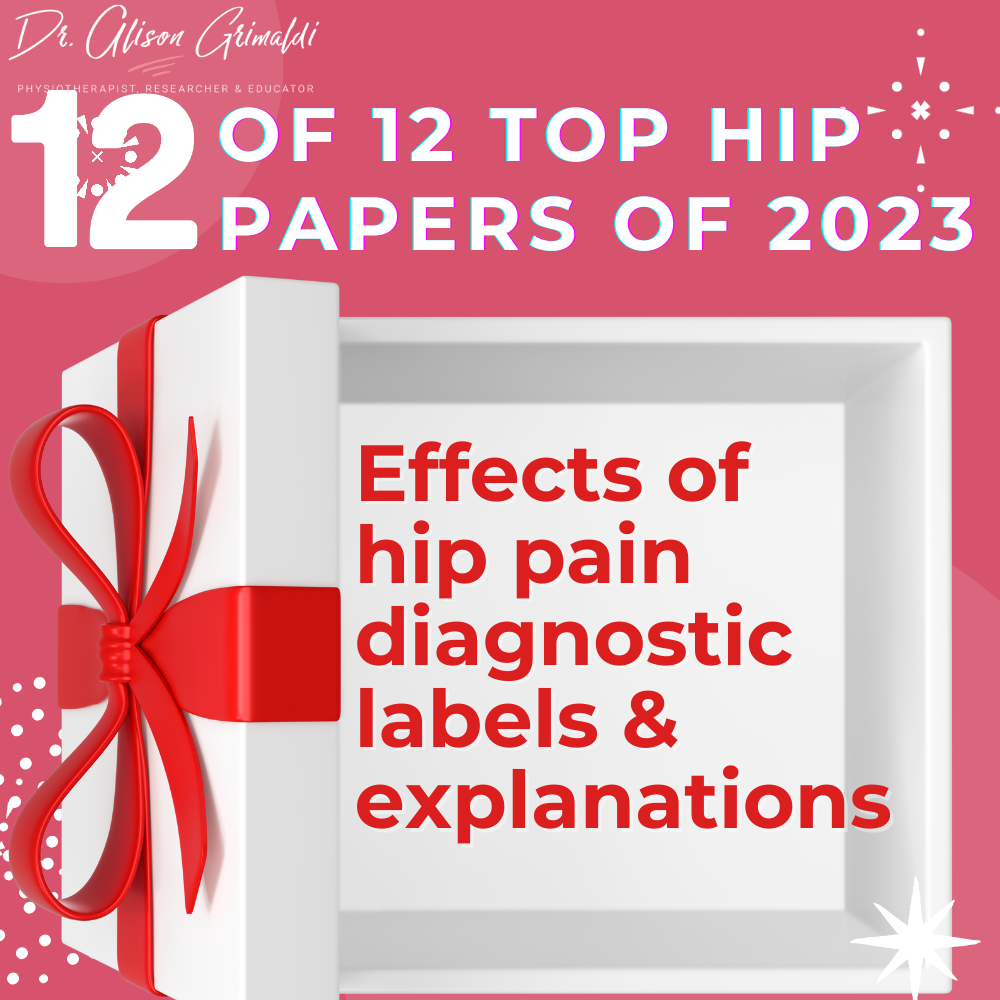11 of 12 Top Hip Papers of 2023 | Capsular closure during hip arthroscopy

Day 11 of my 12 Top Hip Papers series of miniblogs for 2023! If you missed Day 10, you'll find a link at the bottom of this page to take you back. For day 11 we'll be looking at a paper that reviewed outcomes of clinical studies that performed capsular closure during hip arthroscopy versus those that left the hip capsule unrepaired.

For your convenience, we have also developed this content into a FREE 31-page full colour ebook!
Packed full of 12 Top Hip Papers - peer reviewed scientific papers from 2023, that have contributed to our understanding of hip conditions and/or the assessment or management of hip pain or injury.

11 of 12 Top Hip Papers of 2023: Capsular closure during hip arthroscopy versus unrepaired hip capsules1
Marco Yeung and colleagues flagged the issue of gross instability after hip arthroscopy in 2016. At that time there were few scientific reports on the topics, but these surgeons believed the case studies reported represented the tip of a much larger iceberg. One of the strongest surgical risk factors for post-operative instability is an unrepaired capsule, and it also appears to be a predictor of failed hip arthroscopy.
And yet, capsular closure during hip arthroscopy remains a contentious clinical topic amongst hip arthroscopists. Scientific studies comparing outcomes have previously been lacking, but the evidence has been building and this paper provides an update on the evidence to-date.
Study Aim:
- This study aimed to perform a meta-analysis of clinical studies to compare pooled outcomes of complete hip capsular closure cohorts against unrepaired hip capsule cohorts, in patients undergoing hip arthroscopy.
What was done:
- A systematic review and meta-analysis of all available comparative clinical outcome studies that compared hip capsular closure to unrepaired hip capsules during hip arthroscopy.
Key Findings: Capsular closure during hip arthroscopy versus unrepaired capsules
Relative to unrepaired capsules, complete capsular repair resulted in significantly:
- greater improvement in the Modified Harris Hip Score from baseline,
- greater improvement in function (Activities of Daily Living outcome scores) from baselines,
- lower probability of subsequent revision arthroscopy,
- lower probability of subsequent conversion to total hip arthroplasty (hip replacement surgery),
AND
- no difference in sports specific outcomes.

Clinical Implications:
- This evidence should aid in reducing controversy and hopefully increasing the rate of capsular repair by hip preservation surgeons.
- Rehabilitation clinicians should be aware of post-op capsular status.
Capsular closure after hip arthroscopy is not consistently performed by all hip surgeons.
Do you routinely ask for op reports and check the status of your patient's capsule after hip arthroscopy?
Do you consider capsular status in the early advice and exercise prescription provided to these patients?
Lack of capsular closure may put the patient at higher risk of poorer clinical outcomes from arthroscopy, sometimes requiring revision arthroscopy and/or subsequent conversion to a total hip replacement.
Lack of capsular closure also reduces joint stability, potentially resulting in microinstability or in some cases macroinstability - dislocation. The results of this meta-analysis support complete capsular closure after hip arthroscopy due to superior clinical outcomes. Rehabilitative healthcare practitioners should be aware of the capsular status of their patients after arthroscopy and the potential impact on advice, exercise and outcomes.
Like to learn more about managing hip joint instability?
In this course, you can find detailed information on pathoaetiology, assessment and management of hip joint instability, impingement and other soft tissue and nerve related conditions. To learn more, take the anterior hip and groin pain online course, or join me in an online or practical anterior hip and groin pain workshop.
This online course is included in Hip Academy and Hip Academy members receive discounts for online workshops. In Hip Academy, you will also have access to additional lectures on post operative protocols for hip arthroscopy and total hip arthroplasty.
I hope you enjoyed the infographics and key learnings from Day 11 of my 12 Top Hip Papers of 2023. There is only 1 more papers in this series, so use the navigational graphics below, to see what other top papers and infographics I have for you!

Have you heard about Hip Academy?
Enjoy the benefits of a world class educational Hip Program, specifically designed by Dr Alison Grimaldi to help improve your knowledge surrounding the Hip and Pelvis, and become an expert in your field.
With all Hip Courses included, enjoy all the extra inclusions, including; access to the entire eBook series, growing video library, expanding PDF resource centre, regular member meetings, forums + lots more!



